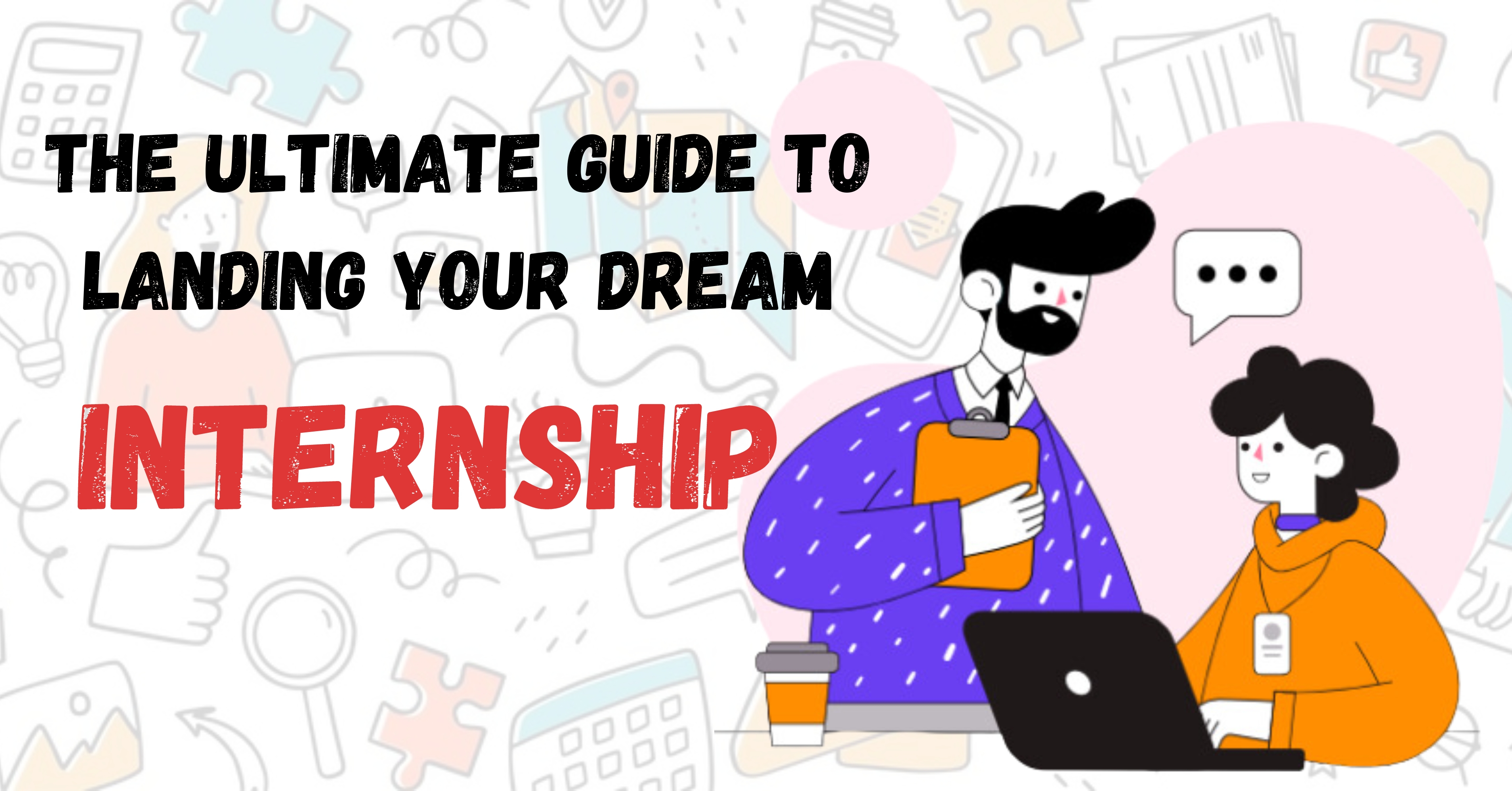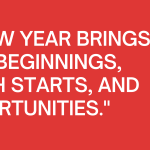
Introduction
Getting an internship has turned into a crucial first step for students starting their careers. These early career experiences provide priceless windows into the working world, enabling people to put what they've learned in the classroom into real-world situations, hone critical professional skills, and create networks that frequently open doors to future employment prospects. Additionally, internships give prospective employees a verifiable history of accomplishment and experience, which makes them stand out in the competitive job market. Finding and taking advantage of chances, whether they be part-time throughout the school year or as a summer internship, may provide the groundwork for a successful future.In order to provide students with confidence and direction as they start their professional adventures, we want to provide expert insights and assistance on navigating every aspect of acquiring and maximizing internships through this guide.
Tips for Choosing the Right Internship.

-
Look via websites such as Indeed, Glassdoor, and LinkedIn to find open opportunities.
-
Filter your search criteria based on region, industry, and role to locate jobs that match your
career aspirations. -
Study about the culture, values, and any career programmes offered by the companies by
visiting their websites. -
Keep track of the application deadlines and any specific criteria that may apply.
Using networking techniques to find unlisted internship opportunities
-
Get back in touch with your instructors, career counselors, and alumni network.
-
Attend job fairs, seminars, and industry conferences to network with prospective employers
and find out about forthcoming possibilities. -
Getting involved in professional groups may help with networking and frequently result in
access to unique job posting channels. -
Recall that sincere participation and demonstrating a strong desire.
Making an Outstanding Application for an Internship
-
Your application has to highlight your accomplishments, background, and potential contributions
to the company.
Resume writing advice for applicants seeking internships
-
Make your CV specific to the position you're seeking by highlighting projects, courses, and
previous employment or volunteer experience. -
Focus on outcomes and achievements rather than just duties.
-
Use keywords from the internship description in your application.
-
Quantify your success with numbers like percentages or monetary values.
Cover letter necessities to impress potential employers
-
Make a strong first impression to capture the recruiting manager's interest.
-
Tell your narrative in the cover letter, outlining how your experience, qualifications, and
aspirations fit with the objectives of the organization. -
Do a lot of research on the business and bring up any exciting details about their job.
-
Keep it brief - one page should do.
-
Say how excited you are to contribute to and learn from the team at the end.
Getting ready to apply for internships online with a polished appearance
-
Makeover your LinkedIn profile first.
-
Make sure your profile picture is professional.
-
Create a creative description that highlights your talents and career goals.
-
Include a list of any relevant experiences and accomplishments.
-
Showcase assignments or projects related to the field you want to work in.
-
Tidy up your social media accounts and change privacy settings to make sure nothing might
harm your reputation with potential employers.
- Thorough investigation and well-thought-out preparation are necessary to land an internship that fits your professional goals. It's important to learn about the sector you want to work in in addition to getting experience. Here's how to start your search for a perfect internship.
-
Researching possible positions for internships
- To find sectors and businesses of interest, start with a general search.
Nailing the Internship Interview

-
Typical interview questions for internships and how to properly respond to them
To determine whether you are a good fit for the internship, interviewers frequently use a set of
common questions. These might cover topics including your areas of strength and weakness,
the reasons behind your application, and how the internship fits into your overall career plan.
You can also be requested to expound on a difficult project you've completed or to explain your
teamwork style. Prepare brief, sincere answers that showcase your abilities, work ethic,
and passion for the subject. Provide concrete examples of your strengths and problem-solving
skills from extracurricular activities, prior employment, or academic assignments.
During internship interviews, the proverb "dress for the job you want, not the job you have" is
especially relevant. One of the most important aspects of your initial impression is your clothing,
which should complement the company's culture. Choose business formal clothing for venues
such as corporations. While ladies could choose a professional dress or suit, guys might think
about wearing a suit and tie. -Business casual is typically suited in settings that are more relaxed
or creative. Men may seem put together with neat trousers and a collared shirt, while ladies can
look put together with a modest dress or fitted trousers and a classy top. When in doubt, err on
the side of formality and stay away from ostentatious or too informal clothing.
Virtual interviews are becoming commonplace and need at least as much preparation as
in-person interviews: Make sure your internet connection, microphone, and camera are
functioning properly by testing your equipment in advance. Select a place that is calm, well-lit,
and has a clear, uncluttered background. If you want to come across as professional, dress like
you would for an in-person interview. Make eye contact with the interviewer by directing your
attention towards the camera rather than the screen.
Making a good impression during the interview process is typically the deciding factor in getting an internship. To ace this important phase, you need to know what to wear, how to do a virtual interview, and frequently requested interview questions. Thorough preparation may set you apart from the competition and help you have a prosperous career launch.
Getting the Most Out of Your Experience as an Intern

-
Give your education and growth direction.
-
Encourage your boss and yourself to have conversations about how you can improve and
contribute. -
Assist in evaluating your accomplishments and growth upon completion of your internship.
Building professional relationships while you're an intern
-
Developing significant relationships is maybe one of the most beneficial parts of an internship:
-
Look for a mentor who can help you with your internship and career planning by offering
advice, criticism and support. -
Engage in active participation in corporate activities and team meetings to build relationships
with those around you. -
Show gratitude to those you meet and keep in touch with them because these connections
may lead to possibilities down the road.
During your internship, demonstrating initiative and a willingness to learn
-
If you want to get the most out of your internship, be proactive and eager to learn:
-
As long as they don't conflict with your main obligations, volunteer for initiatives that go
beyond your current responsibilities. -
To show your enthusiasm in the subject and to expand your knowledge of the topic, pose
thoughtful questions. -
Regularly ask for input, then make good use of it to enhance your work and fit in with the
company's culture. -
Consider your internship as a fundamental experience that will define your professional path
rather than merely a stopgap measure. You'll position yourself for a fruitful and satisfying
career path if you study hard for your interview and grab every chance to learn throughout
your internship.
like learning a new piece of software that is pertinent to your line of work. Establishing goals
for yourself will
Setting objectives for your internship
- Start by deciding what you want to get out of the internship. Objectives might be more broadly defined, like improving industry knowledge, or more skill-based,
Completing Your Internship and Extending the Learning Experience

Asking feedback at completion of your internship
Asking your supervisor and other interns for feedback at the end of your internship is one of
the best things you can do. Feedback that is constructive helps you identify your areas of
strength, where you can grow, and possible career paths. Have a humble and growth-oriented
mentality when you enter the discussion. Gaining insight into your performance and areas for
improvement gives you the tools you need to succeed in comparable situations down the road.
Once you've gathered feedback, it's time to update your resume and LinkedIn profile. Highlight
your contributions, the skills you've developed, and any notable achievements during your
internship. Be specific about your responsibilities and the impact of your work. For example,
instead of simply stating "Assisted with marketing campaigns," detail your role more descriptively:
"Contributed to the development and implementation of a digital marketing campaign, resulting
in a 20% increase in social media engagement." These updates ensure your profile reflects your
growing expertise and makes you more attractive to future employers.
How to take use of your internship to further your career
- Utilizing your internship experience to your advantage in the future requires taking a few calculated steps:
- Networking: Keep in touch with your managers and coworkers. These connections may result in career possibilities, mentorship, and advice.
- Reference: Request a letter of recommendation or reference from your boss. A positive recommendation from your internship might make a big difference in your job applications.

-
Reflection and Growth:
Determine which job choices are a good fit for you by using the experience and feedback you've received. Your future career and educational decisions can be informed by this contemplation.
-
Ongoing Education:
Look for chances to pick up new knowledge and hone the abilities you gained from your internship. You may stay current and develop your lifelong learning skills by taking online classes, attending seminars, and reading trade journals.
Making the most of your internship experience may help you go from intern to highly sought-after professional in your area. You can do this by asking for feedback, updating your professional profiles, and making the most of the network and abilities you've gained.









